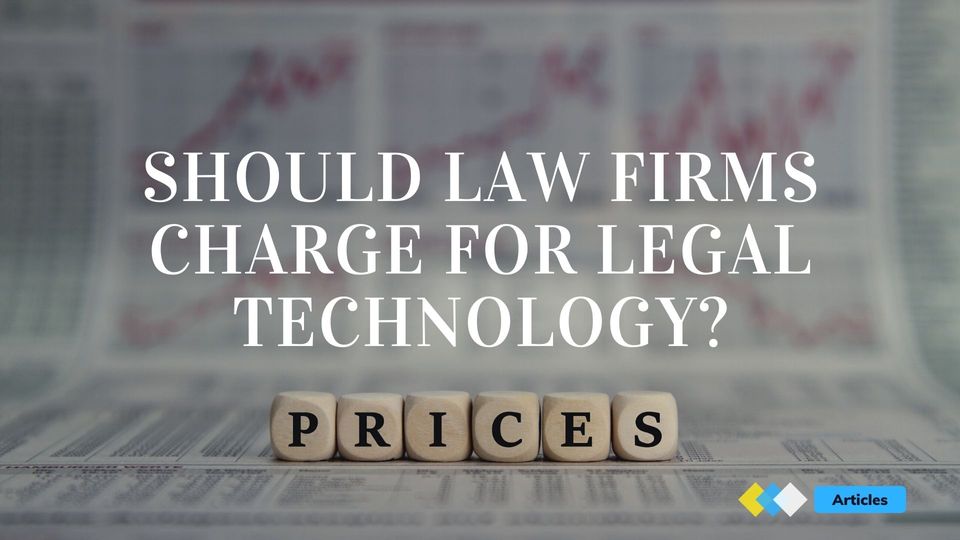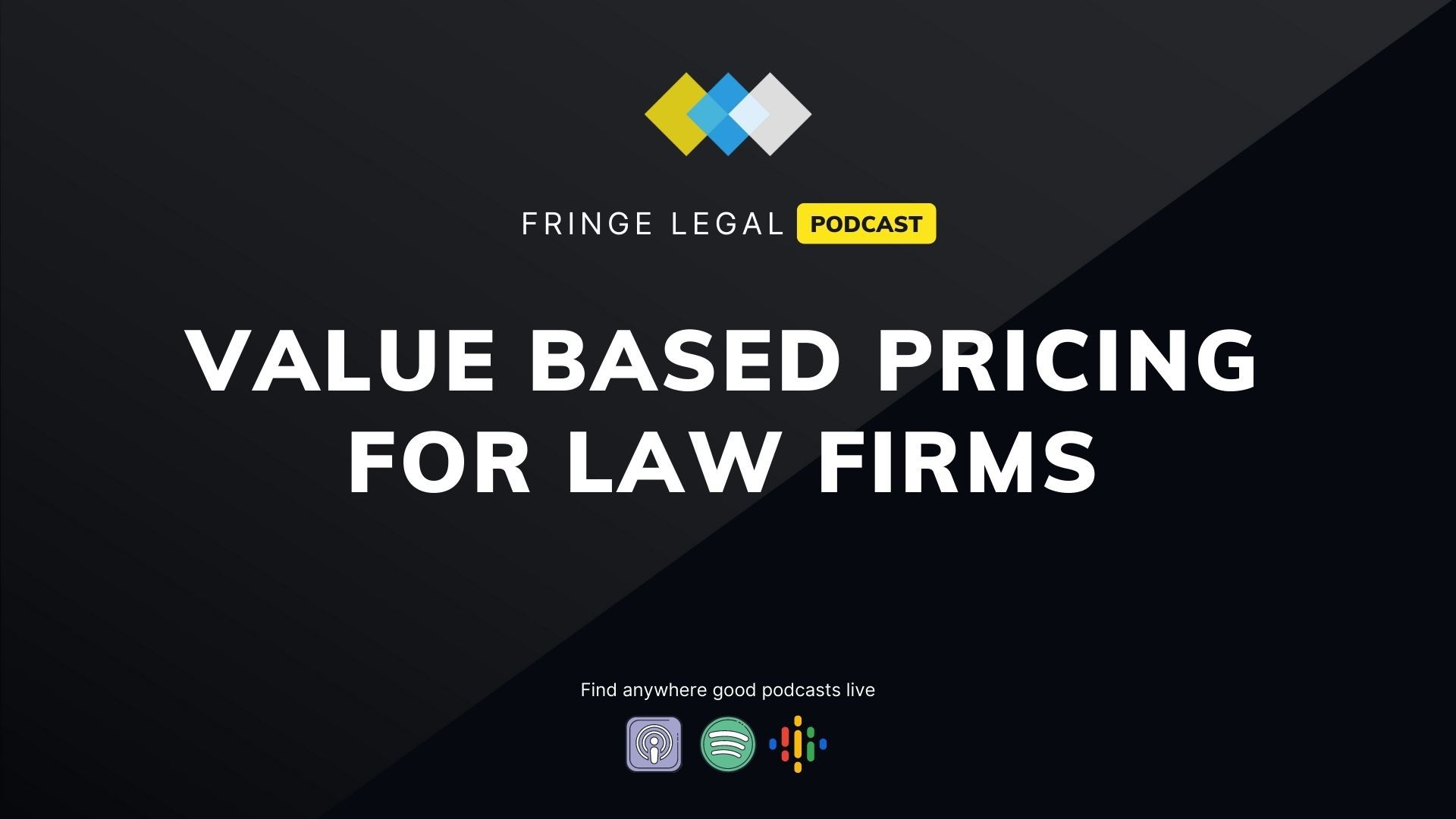Should law firms charge for legal technology?

Notes from a Validatum webinar Richard Burcher (Validatum article here)
Charging for technology seems daunting, but it can be demystified if approached with a better understanding of how technology adds value to legal work.
What does it mean for the legal practice?
Introducing technology will not negatively impact the billable hour:
- while costs go down / demand increases (Jevon’s paradox)
- new solutions and pricing models can be created which weren’t possible before
- new streams of work can be created (because you can now scale the team) which weren’t possible previously
Jevon’s Paradox (click to expand)
suggests that in elastic markets when the efficiency of a resource is increased paradoxically the cost of service is also increased.

How do you decide if charging for legal technology is right?
Why don’t firms charge for legal tech?
- assume it’s the cost of doing business
- assume that the client’s expectation won’t pay for it
- the matter/project team (partners) are uncomfortable having the discussion
- the matter was priced correctly taking into account the technology (very rare) or before the tech was introduced
How can law firms charge for technology use?
- Nominal charge
- Break-even
- Make a profit
Two approaches to charging
- Pass through: for example, you could charge by document at cost OR at cost + markup
- Technology fee: flat fee per matter/case/project. This is similar to what happens with eDiscovery or VDRs (virtual data rooms)
Novelty and specificity matter. On the latter, the key question: can the technology be specifically linked to the matter, or is it technology that is used to get legal work done?
As technology becomes more ubiquitous the ability to charge for it decreases
(I don’t fully agree with that - look at the smartphone market. When Apple announced the original iPhone it was thought to be outrageously priced at $599 - a decade latter the higher end models are almost 3x the cost. Prices are matched to value and utility (see below)).
Pricing strategies for law firms
Three frequently discussed pricing strategies:
- Cost-based: cost of providing the service (what’s the minimum required to keep the lights on)
- Demand-based: what does the market accept or competitor charge - tie it to that. Very dynamic.
- Value-based: listen to the conversation with Keith M. for a more in-depth discussion on value-based pricing.

There are other pricing strategies as well. One example is a subscription based model which we was discussed in the podcast with Joyce Tong Oelrich:

What's important to your client?
good, fast, cheap - pick two?
What's important to your client?
Law firm clients are often buying the reallocation of risk - in these circumstances, the cost of work production is immaterial as it doesn’t impact the risk-allocation equitation. Similarly, value is very difficult to attach to the unquantifiable elements (example: peace of mind, speed of delivery, and reputation protection).
Ask questions, and learn what matters to clients.
The old adage goes: good, fast, cheap - pick two.
Do you know which two are important to your clients?
What can pricing teams do for lawyers?
Thinking about pricing, or their role as “sales” individuals isn’t natural for most attorneys. As was noted earlier, one of the reasons firms don’t charge for technology is because the partners are uncomfortable having these discussions.
To assist with the conversations, make it easier:
- Develop pricing models and templates
- Introduce pricing governance - do two partners in the same practice in the same geo think about charging [for technology] in the same way?
- Align incentives - if billable hours are the only incentive, then the appetitive to leverage technology that may cut down the time billed will be much less
- Train, and train frequently - provide support and training on how to position the value of technology to clients.
- Start by teaching partners the value of technology the firm has
- Then focus on how it impacts the clients and how it can be positioned as part of the pitch
- Provide stories from peers and case studies from others that have found success which they can reference.
- Provide support by having open conversations with pricing directors and peers that have gone through the process already
Pricing discussions can be challenging regardless of the position. To make them smoother, paint the value story.
What do we offer, and how do we augment technology into the work done for you, as a result of which the value you receive is greater, more quickly realized, or cheaper to deliver.







Become a Fringe Legal member
Sign in or become a Fringe Legal member to read and leave comments.
Just enter your email below to get a log in link.